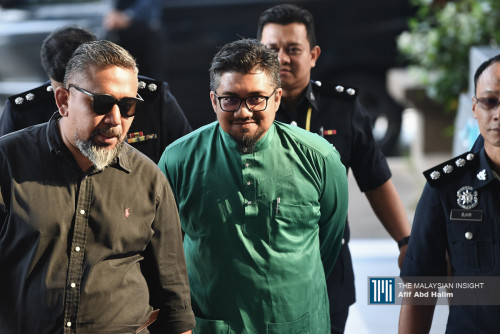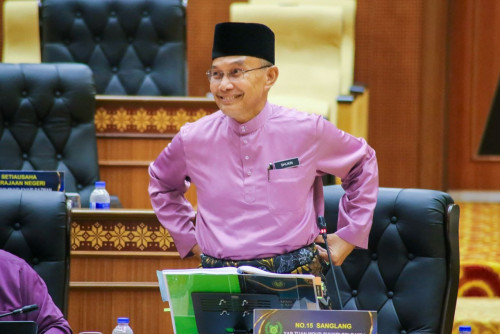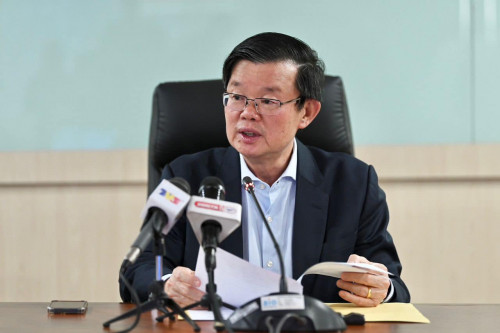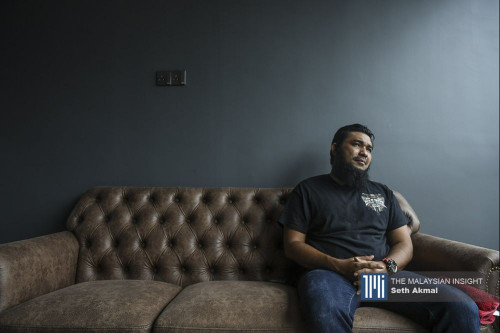KUALA LUMPUR – For decades a formidable presence in Malaysian politics even when in the margins, Tan Sri Shahrir Abdul Samad has been variously described as “imaginative”, “stubborn” and “outspoken”.
He held the Federal Territories and social welfare portfolios in the first Tun Dr Mahathir Mohamad administration, and the domestic trade and consumer affairs portfolio in the Tun Abdullah Ahmad Badawi administration.
And now, he has been lacerating in his criticism of the Tan Sri Muhyiddin Yassin-Perikatan Nasional administration.
Speaking in an exclusive interview with The Vibes, Shahrir details his criticism, speaks of Umno’s “search” for itself in the past three years, and the institutional reforms the nation desperately needs which, he asserts, can emanate from Umno.
Eddin Khoo: Tan Sri, you have advocated Umno’s pulling of support from the Perikatan Nasional government, claiming in a recent interview with Astro that this administration has made “error upon error”.
This would be a perfectly acceptable exercise in ordinary times, but during a pandemic, where would this leave a nation whose principal preoccupation should be addressing fundamental issues of health, livelihoods and the well-being of the people as a whole?
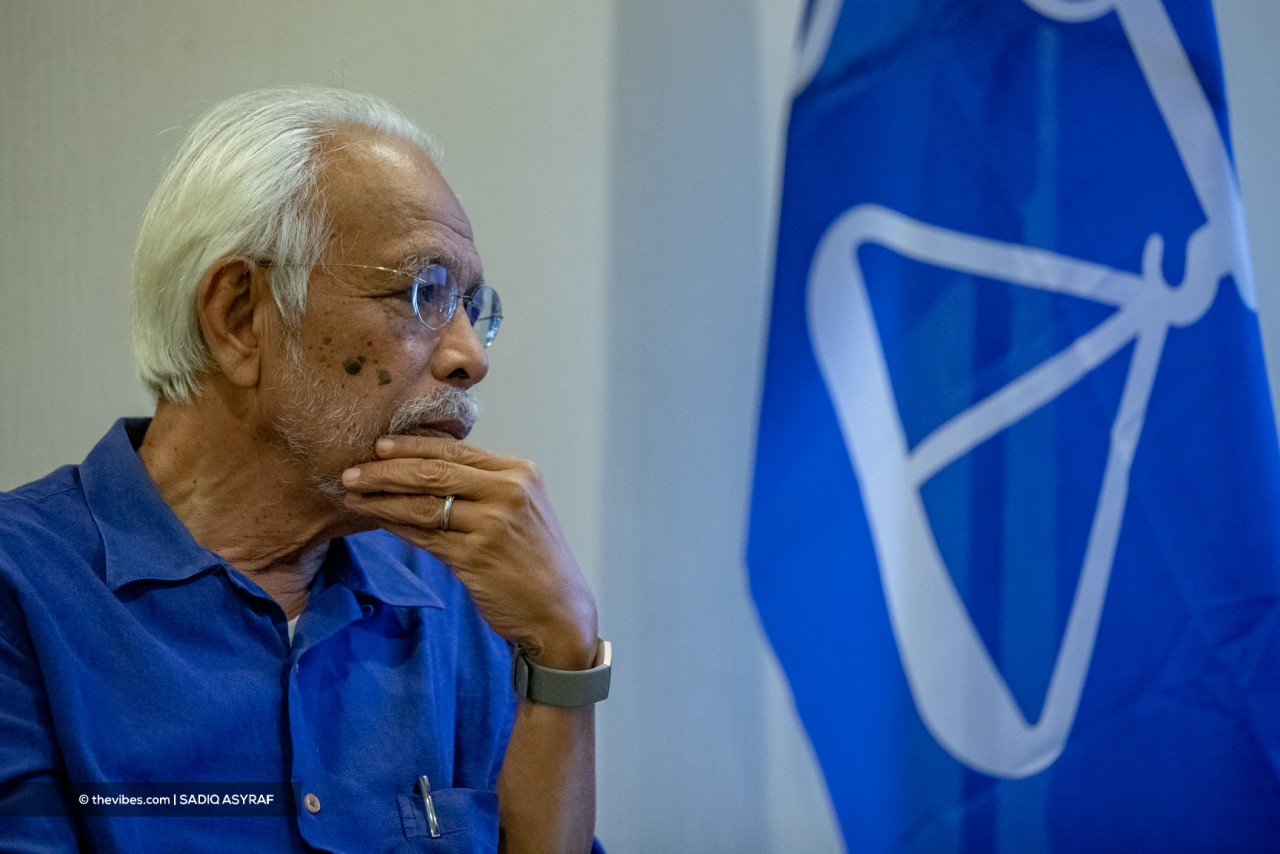
Tan Sri Shahrir Abdul Samad: If you know that the leadership has failed, do you carry on with the situation, which has now become so untenable?
Why are we now back to where it all started, when in fact we had done very well at the beginning? Where was the mistake?
We, the public, do not have all the facts, but we know the results. And with such results, I think, at the very least, if we change the government, we can get the facts and perhaps change the results.
We need fresh minds and ideas, and we can get this only if we stop this top-centric approach. Because there is an alternative approach that begins at the grassroots level, in which the state governments and local authorities have a role to play.
The local authorities started out as health and sanitation boards with responsibility for public health. So, they have the resources. At the beginning, if you had just combined and used them, I believe we would not be in this situation.
Leadership is not just about your dictates.
The principal mistake this administration made was not convening Parliament. Maybe it is not in the nature of his (the prime minister) leadership to be consultative, but when you are prime minister, you have to be consultative!
You can talk to other national leaders, but you are not prepared to talk to your own people? This shows a real failure in leadership where, in a crisis, you just want to drive something without building consensus.
You must get the country behind you in a crisis, and who else if not members of Parliament and the respective political parties? Because this is a democracy. It is not a system based on individuals.
The emergency, in fact, was not actually a problem since the ordinances created were specifically for the purpose of fighting Covid-19. The biggest mistake was not allowing Parliament to convene.
In a time of crisis, a leadership that is not consultative, and not open to other ideas and other perspectives, is no leadership at all.
EK: If this crisis is to be managed and a transition of leadership required, it must be done rapidly and with conviction. Yet, only two Umno ministers have resigned, and there has been silence since. What is this gradualist approach? Strategy, or is there a serious problem of consensus within?
SS: Umno is split in two, and then three – between those who are in the government, and those who are not. Those in the government, meanwhile, are split in two – the (Datuk Seri) Hishammuddin (Hussein) and (Datuk Seri) Ismail Sabri (Yaakob) groups.
What is clear, however, is that there is no majority for this government, right? And that is why I am surprised that ministers who took an oath on the constitution are still defending this government. They should step down.
EK: But these are the senior leadership, they are not non-entities, so it says a lot about…
SS: …the quality that we have. That is why I say, when Ismail Sabri holds his press conferences, I do not see quality.
They cannot even demonstrate that they understand what the constitution is. Section 43(4) explicitly says that the prime minister and cabinet must resign if they do not command a majority.
So, you are a cabinet member who is unlawful. And you are still there enjoying the benefits of the office. What are you waiting for? Your August salary?
EK: But as senior leadership, do they not hold great sway in the government and party?
SS: They do not.
EK: You mean they can be neutralised just like that?
SS: They seem to not have any influence over the prime minister, or PN. They do not even seem to have influence over other Umno ministers and MPs.
EK: So, even within the government, there is fragmentation…
SS: There is fragmentation… So, if you are a senior leader, and a senior party leader at that, and you have been a member of Parliament for a couple of terms, you should know the constitution, right?
What else is there left to argue? They claim to have the largest number bloc, but are not sure they have the next person’s support.
You have to put it to the test; the constitution says we have to put it to the test. Or, call for an election. Though, we think even the Agong will not agree to an election.
But now, the rakyat are faced with this situation, and they are not seeing consensus being built during a crisis like this.
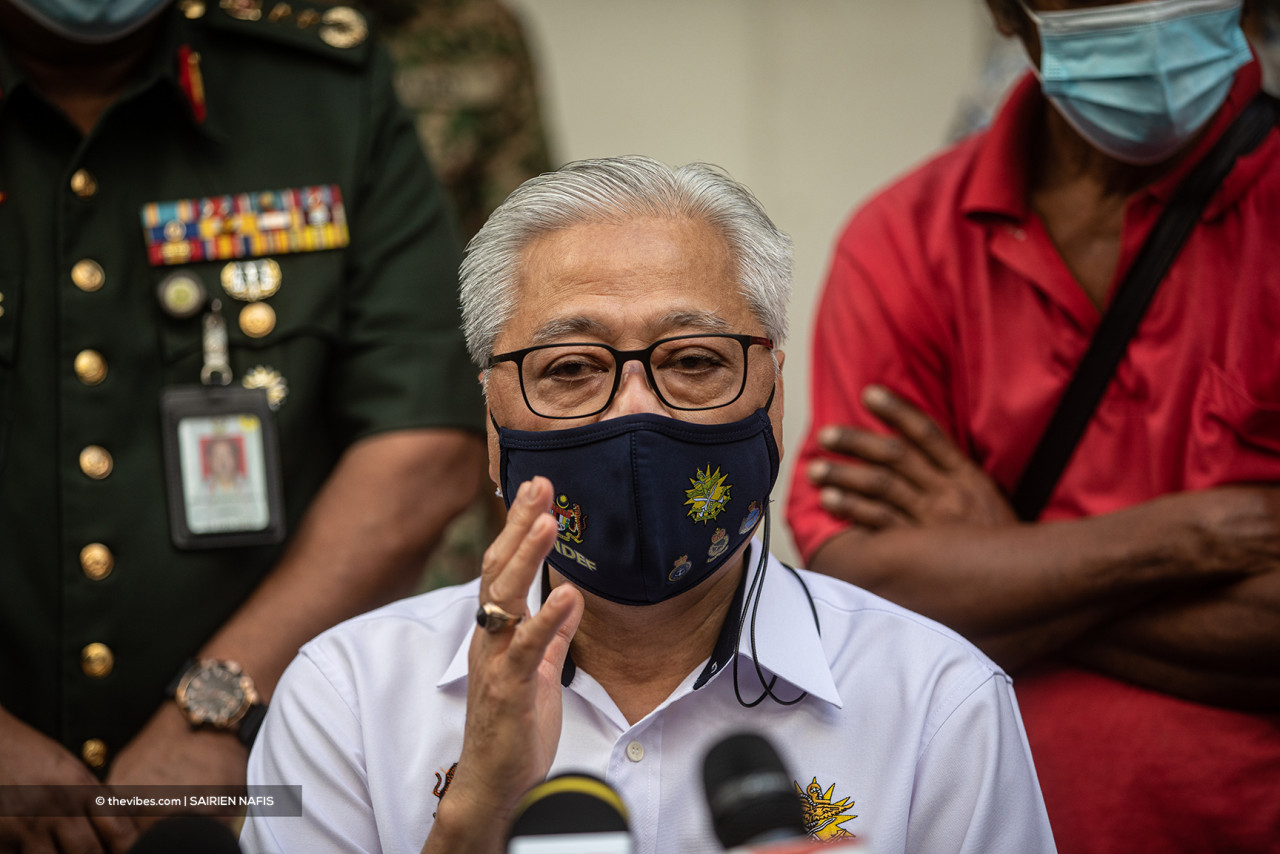
EK: All these approaches you speak of about combating the pandemic, working from ground up… Haven’t these ideas been conveyed to the leadership already? Umno has the most ministers in the cabinet now.
SS: Yes, but I do not know what they are talking about. You have the National Security Council, the Health Ministry. Do they not discuss this?
That is why I see this as being so important: why can there not be discussion with 220 people on an issue that is so important? Who then are you going to discuss with? Are you going to just talk down?
Now, they have created a situation where there is disparity in fines and the treatment of people who run afoul of standard operating procedures (SOPs). Why do you create such a situation? Why is a minister treated differently?
This is very dangerous. By encouraging this disparity, they have brought about movements like the black and white flags. The white flag situation is very simple. If the community is activated, they will take care of members of the community.
That is why in Johor Baru, for example, we do not have as many instances of white flags, but where we see or hear of one raised, that is where we go.
So, if we are accused of just talking politics, that is nonsense, because we are working on the ground and assisting with either vaccination or putting food on the table.
This happens on the ground without any assistance from the federal government. Fortunately, the state government has helped us, but that is what I see on the ground.
You have to liberalise many things.
The people do their part. They stay indoors, they abide by SOPs, yet you have this spread (of Covid-19). You may not know how it came about. Maybe there are silent carriers, but how do you handle that? You have to make quick decisions, yet Parliament is suddenly not utilised.
The question now is what happens to this country if this situation is allowed to go on this way.
Is Muhyiddin providing the leadership? Is the cabinet? Are they thinking outside the box? If you always think you know how to handle the pandemic, yet the results are horrendous, then you have to take responsibility.
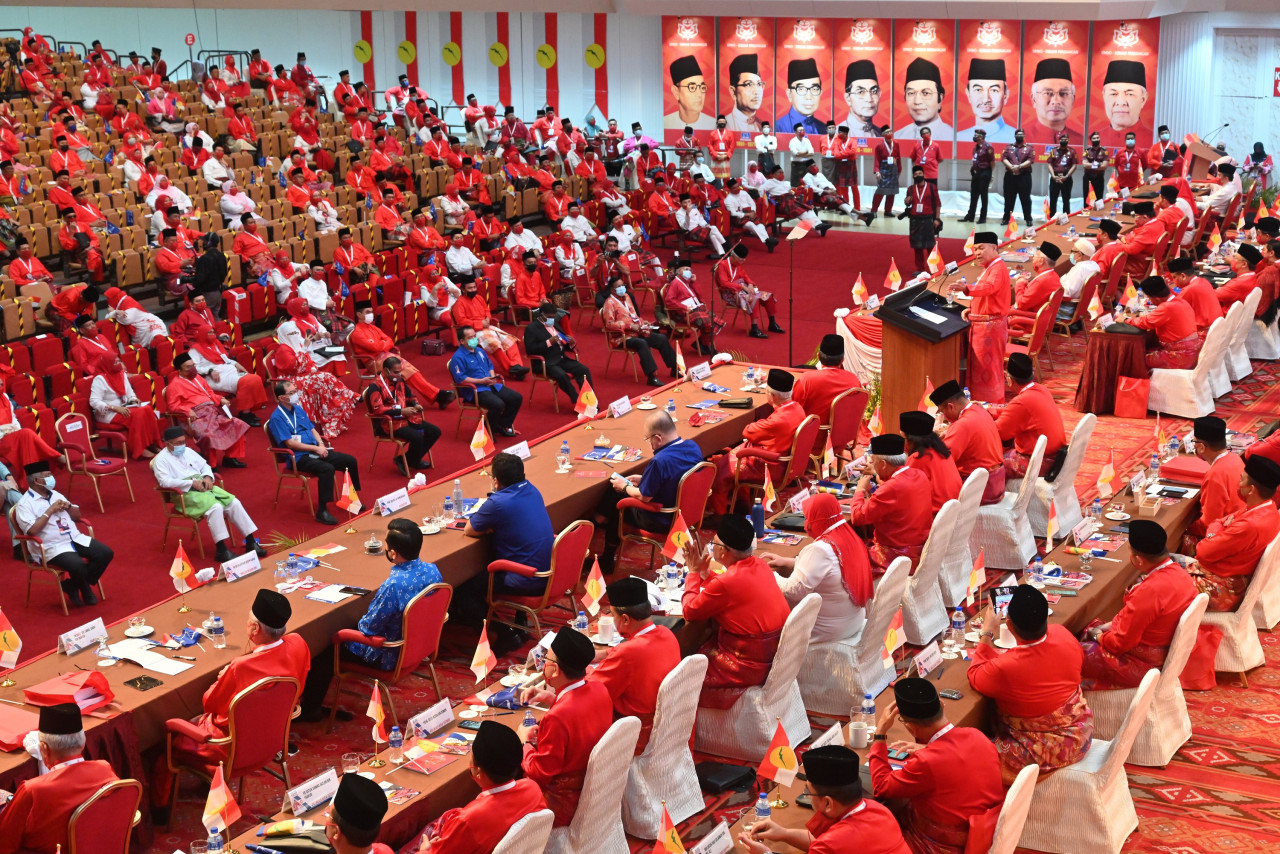
EK: Umno has the largest number of cabinet members. You, Tan Sri, have all these ideas, and an experience of what is happening on the ground. What do you think is happening within the cabinet?
SS: I do not know. Do they not discuss any of these matters?
EK: What does that say about Umno members in the administration? Umno considers itself the “natural party of government” after all.
SS: Well, we were not the ones who selected them. They are our party representatives, and when they become ministers, they separate themselves as “the government” and say it is not the party’s business. That is a problem.
EK: The manner in which Umno has explained its case to the people is unpalatable. It is not saying that it is pulling out as a party, but simply saying it has organised enough people to bring the government down – where is the conviction?
SS: No. We, as a party, have made the decision to pull out. It is they (remaining Umno ministers and MPs) who are not. This is the answer some of them have given – “we will wait for the parliamentary session to show where we stand”.
My argument is very simple: if the suspension of Parliament did not upset you, why are you now saying Parliament is important? All remaining Umno members who are in cabinet are a total write-off, as far as I am concerned.
EK: In all your decades of experience in the party, have you seen this level of fragmentation?
SS: First of all, I think the party grassroots are united. We survived 22 months of being the opposition with no prospects in sight. No problem, here we still are.
Now, we are able to cleanse ourselves of this image of being a political party with leaders who look only for contracts and projects. We are here because we believe in the public’s struggle.
That is excellent.
In going through this cleansing process, those who want projects, and survive as rentiers and commission agents, they can leave. Those who want to save themselves from being taken to court have leapt to the other side – (Datuk) Mas Ermieyati (Samsudin), (Datuk Seri) Mustapha Mohamad.
Now, as I see it, there is potential for us to clean out even warlords like (Datuk Seri) Shahidan (Kassim), (Datuk Seri) Tajuddin (Abdul Rahman) and (Tan Sri) Annuar Musa.
This cleansing process must go on, and it is good for the party. We are now looking at issues of institutional change and institutional reform.
We are also looking at the recall election system, for example, and maybe putting that pledge in our manifesto for the next election. This means that we are now prepared to contest in the general election (GE) on a level playing field.
That is as far as the party and its grassroots are concerned.
This is also good for the country then, (because) now, Umno does not need to manoeuvre itself to be the government party. We have to go back to becoming a political party – a real political party, where everyone competes on the basis of ideology, manifestos, talent and required performances.
This is good for Umno, as well as the country.
We are now prepared to set a level playing field in the next GE. This process is very much needed for Umno – not just to reinvent itself, but to go back to its roots and the basis of its struggle.
So, everybody understands what we stand for the party ideology and constitution, as well as the federal and state constitutions. And we then work towards improving other aspects of this country – the legal, parliamentary and institutional bases.
EK: Prior to the 2018 GE, Umno was accused of being the source of the institutional rot and systemic corruption, the debasement of our system, even by some within the party.
How do you think you can convince the public that all the reforms you are speaking of now can actually happen, and more importantly, actually emanate from Umno?
SS: We are engaging. We are not talking only to ourselves, but of course there is resistance. The first impression is that Umno wants to take power because they want to solve the problem of court cases.
I say no. I am also part of the mahkamah (court) cluster. I have never once gone to talk to anybody. An offer by officers was made to me, “Look if you just pay the compound we will not charge you”. I said, “That does not make sense. I am 70 years old. You are telling me to say that I admit I took money for my own interest when I know how that money was spent”.
And why did I ask from (Datuk Seri) Najib (Razak)? Because he is the president of the party, and this is my source of funds. I do not have businesses or my own war chest to do all this since I did not do any of this for myself. I did it to rehabilitate a failed project.
So, I said, “I have to fight you or I will go to jail”. I will take it to court. I will take this course, and all I ask is for the court to be fair.
And we know it is selective, right? (A total of) 80 people were given compounds, yet only two of us have been charged in court. How much more selective can you be? But we respect the judiciary, so we put our lives and our fate in its hands, and we fight to prove our innocence.
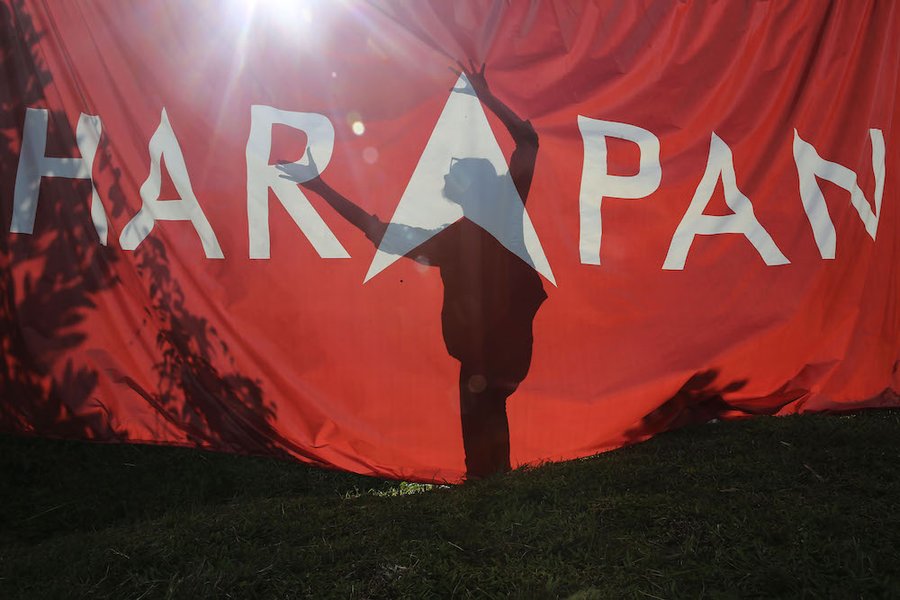
EK: What is your evaluation of the 22 months of Pakatan Harapan?
SS: There are hard decisions that you have to make after you take over as government. If all this while you have believed in your own propaganda, you will have to do it when you are in government.
This is where the problem rises. PH was successful in its propaganda. This propaganda started maybe 15 years ago, little by little.
They talk about Umno and how there is racial polarisation.
When I made a return in 2004, I had an interview with you in The Edge. The question was about racial polarisation. What did I say? I said, “Look, what do you want us to do? You want us to be eating the same food at the same table or do you just want to see at least people gathering together at the same spot?”
And I said, “To me it is a lot of propaganda”, but of course, the propaganda works in the end if it is maintained and endlessly continued until they win the election.
Having won the election, and having changed the government, what happens next?
PH had 22 months. How many houses did they build? Yeah, they talk about housing. How many? How many jobs did they create? How many Malaysians working in Singapore did they bring back?
I think Barisan Nasional certainly has the collective wisdom, and, I am sure, the talent. And now, I think the opportunity is for real political reform to take place.
It is time to turn Umno into a real political party. We are talking about possibly separating the party from the government, where the president (of Umno) need not be the prime minister. That is a possibility. Can other parties do that?
The issue is not about the concentration of power in the prime minister who may be finance minister; the issue is the concentration of power in the prime minister who is also party president?
We are in a position to be able to do it. It is a godsend; it has not been designed by us, but it is still an opportunity.
EK: What has the psychology of Umno been in the past few years? Has it been a catharsis or painful?
SS: In the beginning, it did not feel like we were in the opposition because there was no government. They (PH) did not know how to govern.
What were they interested in? They were interested in taking the keys from the balai raya to take over that space, but did not have the people to organise activities in the area because the community is with us.
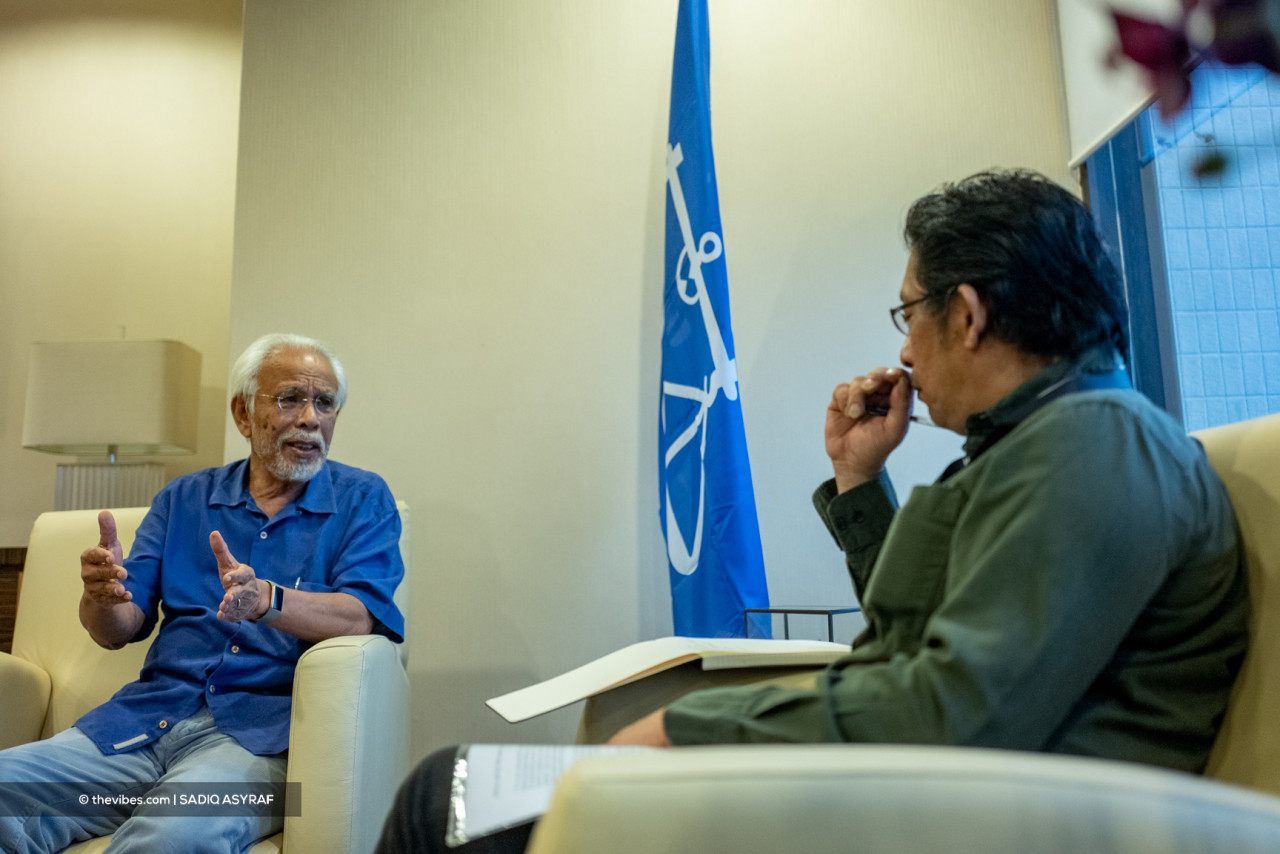
We are street-smart, but we lost to the people who are book-smart. We are not using textbook methods. It is all about helping people, and making sure we know who has not yet gone through vaccination.
All the book-smart guys sitting in Kuala Lumpur, what do they know about this? We are not just talking politics, we are doing politics. Working with the people and helping the people, that is our politics.
So, that is the situation we are in. The change is not so much a catharsis as really finding ourselves. We have gotten back to the basics.
The issues, after all, are the same, right?
We did a real thing vomiting-out, getting rid of the parasites in the system. You know where they have gone…
And I think the top leadership is aware that we are not the same as before, and we are going to be different even more. The party will need to be different. There may be issues about political funding and financing that need to be resolved, and we have to move forward that way.
EK: So much of our political culture has depended on largesse. How are we going to grow out of this?
SS: We can; it is very simple. We have to diminish the importance of being a minister. We have to make sure that by being a minister, you are there like a lord. Cut, tied down and trim. Look at what is happening now, you have something like 80 (ministers).
I think if Umno is in power, the party president should not be prime minister. He has to bring everything down to a more realistic level.
When we are a political party, we have to understand what is our ideology? What is our objective?
We have to think of all this. This change has to happen, and Umno has to lead it.
EK: The pandemic has been described as The Great Leveller. How can we begin to rehabilitate from the bottom, when local authorities find it hard to function and are often ridden with malpractice of all kinds?
SS: I believe in empowering communities because if you empower the communities at the local level, the local agencies have to respond.
The majority of the members of political parties, (including) Umno, are not involved in this (malpractice).
They are ordinary people who are earning a living, taking care of their family, participating in community events and are active at the community level.
It is the leaders who are the problem, who have skeletons in the cupboard, issues; they are most prone to being blackmailed or being threatened.
Corruption, of course, is something that has started with us.
People who are the warlords, people with money, when they get into trouble, we are not going to protect them. Our party is not going to protect them. Good luck to you if you are pulled up and taken to court.
I pay my own legal fees, but I still remain in the party. But I am not doing any deal, right? And every one of us who has been taken to court has done the same.
EK: At this present time, what do you see your role as?
SS: To get as many people to acknowledge the changing situation, and the response we have to take as a political party to respond to that change.
EK: That is a highly intellectual role.
SS: Yes, and very important.
Somebody has to think clearly and argue its importance. We cannot remain “business as usual”. We have to assert that the party president need not be prime minister.
We must be the change, and we must be held to it. Then we can make sure that the institutions get stronger, while remembering that political parties are institutions in themselves. – The Vibes, August 16, 2021



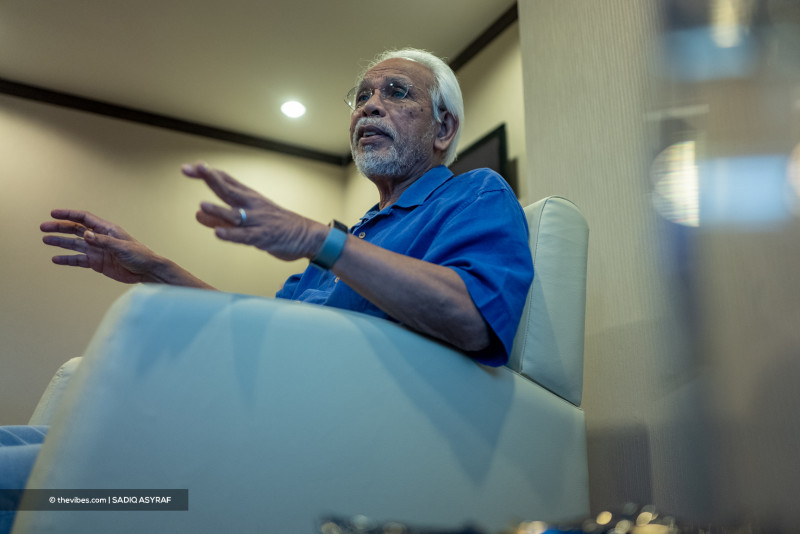
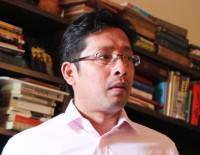

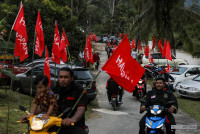
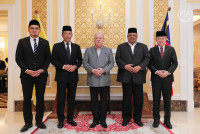

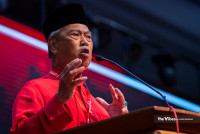
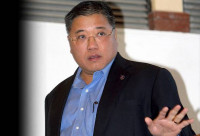
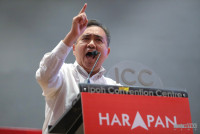
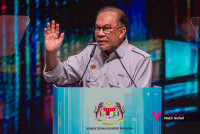


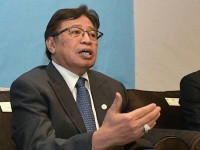
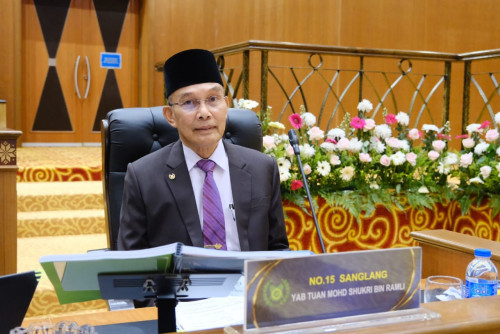
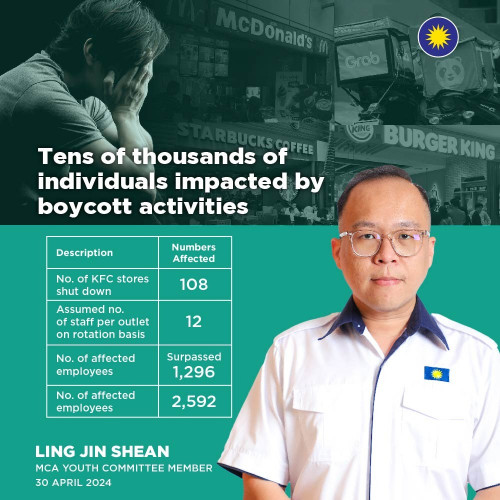
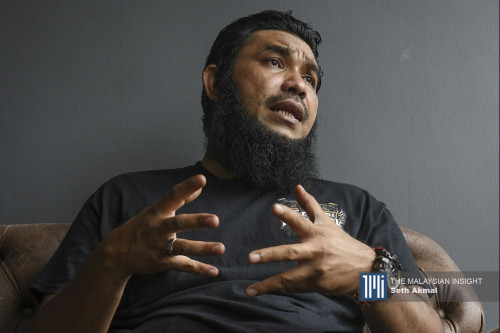
.jpg)
